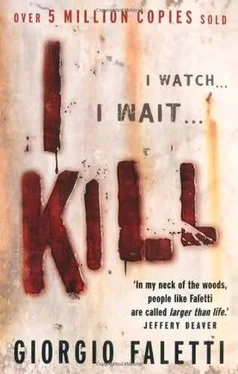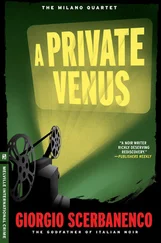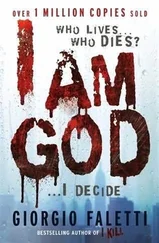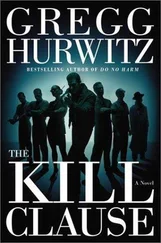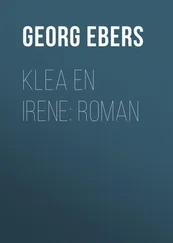His head was full of images of Nathan Parker and his group at Nice airport. The general was probably sitting impatiently with Helena and Stuart next to him while Ryan Mosse checked them in. He could see the massive figure of Froben, or someone like him, telling the old general that there was some bureaucratic difficulty and for the moment he would not be able to leave. Frank couldn’t imagine what Froben would invent, but he could easily guess the old man’s reaction. He wouldn’t want to be in the inspector’s shoes.
The absurdity of the cliché made him smile. Actually, that was exactly what he wanted. Just then, he wanted to be at the airport, doing in person what he had asked of Froben. He wanted to take Nathan Parker aside and finally tell him what he had always wanted to say. He was dying to. No inventing, just clearing a few things up.
Instead, he was sitting there, tasting each passing moment like salt on his tongue, checking his watch every thirty seconds as if thirty minutes had passed.
He forced himself to put those thoughts out of his mind. He focused on Roncaille instead. And that was another problem. The chief of police had put his men in motion with reasonable doubts. Frank had been categorical on the phone, but he had expressed a certainty that he didn’t really possess. He couldn’t admit to himself that he was bluffing, but he knew that he had placed a risky bet. Any bookie would have given him thirty to one without thinking twice. When he had claimed to know No One’s hiding place, it wasn’t a certainty but a reasonable supposition. No more than that. If his theory was off, there would be no serious consequences, just another dead end.
Nothing could change the position he was already in. No One was on the lam and that’s how things would stay. Except that Frank Ottobre’s prestige would plummet in disgrace. Roncaille and Durand would have a weapon against him that he himself had loaded, and they could tell any representative of the US government how unreliable their FBI agent was, despite his undeniable success at identifying the serial killer. And his public defence of Inspector Nicolas Hulot might even backfire. He could already hear Durand’s suave, nonchalant voice telling the American consul Dwight Bolton that, although Frank Ottobre had revealed the identity of the killer, it wasn’t really he who had made the discovery.
If his guess was right, however, if his bet paid off, it would all end in glory. He could rush to the airport and take care of his personal business in the glow of victory. Not that he was particularly interested in glory, but he would welcome anything at all that would help him settle his personal accounts with Nathan Parker.
Finally, he saw the first police car round the curve. This time, as Frank had instructed Morelli, there were no sirens. He noticed that the crisis unit was much larger than the first time they had tried to catch Jean-Loup. There were six cars full of men as well as the usual blue vans with dark windows. When the rear doors opened, sixteen men got out instead of twelve. There were surely others waiting at the end of the road to prevent any possible escape through the garden at the front of the house.
A car stopped, two policemen got out, and then it raced to the roadblock at the top of the road, near the highway. The set-up at the bottom was probably similar. Frank smiled in spite of himself. Roncaille didn’t want to take any chances. Jean-Loup’s easy disposal of the three policemen on guard had finally opened his eyes to the real danger at stake.
Two Menton police cars drove up one after the other, each holding seven heavily armed agents, under the command of Inspector Roberts. The reason they were there was obvious: to ensure that there was a constant collaboration of the Sûreté Publique of Monte Carlo with the French police.
Frank got out of his car. As the men awaited orders, Roberts and Morelli walked over to him.
‘What’s this all about, Frank? I hope you’ll let me know sooner or later. Roncaille told us to rush out here in combat gear but he didn’t give us any details. He was pretty pissed off-’
Frank interrupted with a wave of his hand. He pointed to the roof of the house, half hidden by the vegetation and cypress trees rising above the mass of bushes. He skipped the preliminaries.
‘He’s here, Claude. Unless I’ve made a huge mistake, there’s a 99 per cent chance that Jean-Loup Verdier has been hiding in his own house all along.’ Frank realized that he had just given Morelli and the men the same odds that he had waved under Roncaille’s nose. He decided not to correct himself.
Morelli scratched his chin with the forefinger of his left hand, as he often did when he was puzzled. And this time he was definitely confused.
‘But where in hell could he be? We turned the house upside down. There isn’t a crevice we didn’t examine.’
‘Tell the men to come closer.’
If Morelli was surprised, he said nothing. Roberts, with his natural slouch, waited, unflustered, for something to happen. When all the men were gathered in a semicircle around him, Frank enunciated each word carefully. He spoke French fluently, with almost no foreign accent, but he didn’t trust himself to explain things in a language that was not his own. He looked like a basketball coach instructing his players during a time-out.
‘Okay everyone, listen carefully. I had a conversation with the owner of the other house over there, the twin to this one. They were built by two brothers, a few yards from each other at the same time, in the mid-sixties. The brother who lived here’ – and he pointed towards the roof behind him – ‘in the house that would later belong to Jean-Loup Verdier, was married to a woman who was difficult, to put it mildly. A total pain in the ass, in other words. The Cold War and the threat of nuclear destruction completely terrified her, so she forced her husband to build a bomb shelter under the house. Right here, beneath us.’
Frank pointed to the cement where they were standing. Morelli instinctively followed Frank’s gesture and stared at the ground. He raised his head immediately when he realized what he was doing.
‘But we even examined the plans of both houses. Neither of them showed any bomb shelters.’
‘I can’t explain that. Maybe they didn’t have permits and it doesn’t show up in the land register. If they were building two houses at the same time, with bulldozers digging and trucks coming and going, an underground shelter would be easy to construct without anyone noticing.’
Roberts backed Frank up. ‘If the shelter was built and does in fact exist, it probably happened the way Frank says. There was a construction boom back then and an awful lot of rules were stretched.’
Frank went on telling them what he knew. ‘Rouget, the owner of the other house, told me that the entrance to the shelter is located in an empty room behind a wall covered with shelves.’
A commando raised his hand. He was one of the men who had assaulted the house when the bodies of the three policemen had been discovered, and he had searched it from top to bottom.
‘There’s some kind of laundry room in the basement to the right of the garage. It gets light from a window that looks out on the courtyard. I think there are some shelves on one of the walls.’
‘Good,’ said Frank. ‘I don’t think the problem is finding the shelter as much as opening it and forcing whoever’s inside to come out. Let me ask a crazy question. Does anyone here know anything about tackling bomb shelters? I mean, more than they show in the movies?’
There was a moment of silence and then Lieutenant Gavin, the crisis unit commander, raised his hand. ‘I know a little, though not that much.’
Читать дальше
